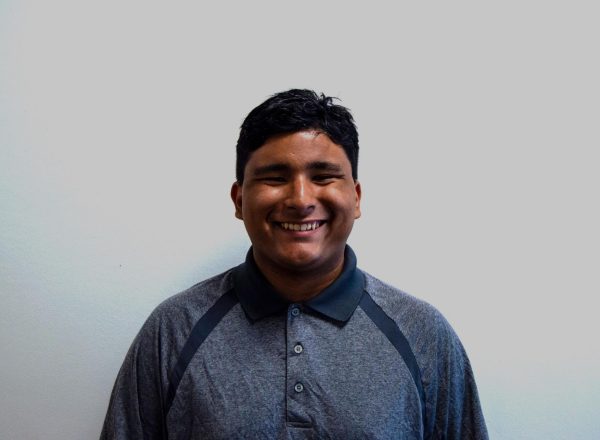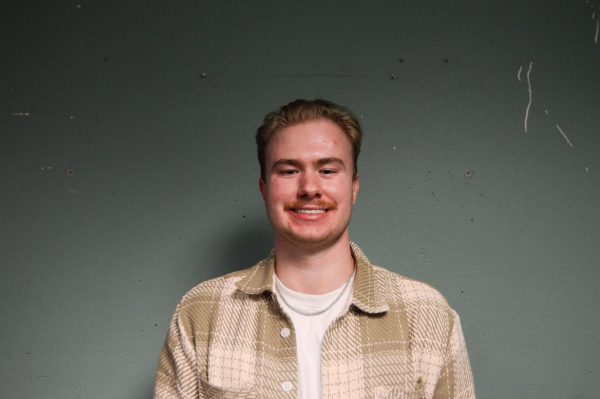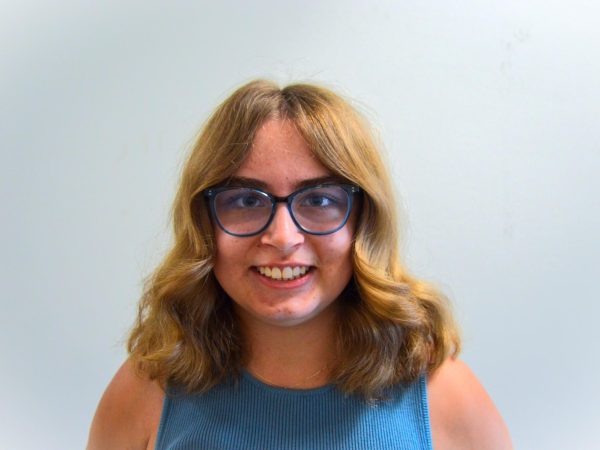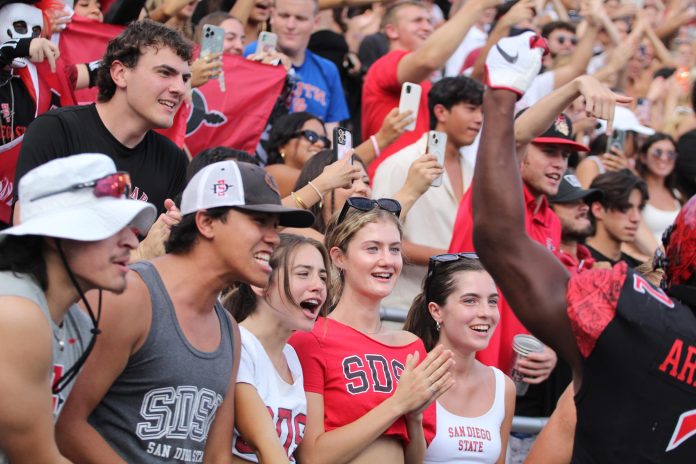The new institution aims to spread unbiased knowledge and data that dives into the depths of sports betting
When San Diego State University officially launched the Institute on Sports Wagering and Gaming (ISWAG) on June 23, it wasn’t just responding to a booming national trend; it was aiming to lead it.
Housed within SDSU’s L. Robert Payne School of Hospitality and Tourism Management, ISWAG will serve as a research and education hub focused on sports gambling, fan behavior, policy, and consumer protection. ISWAG currently plans to offer academic certificates and courses to students at SDSU, as well as to professionals who wish to learn more about the intersection between the sports and gaming industries.
The U.S. Supreme Court opened the door for legal sports betting in 2018 by striking down the Professional and Amateur Sports Protection Act, giving individual states autonomy to decide how to legalize and regulate sports wagering.
The institute’s debut comes at a critical time, given California’s lack of a decision surrounding the legality of both sports betting and fantasy sports alike.
Brandon Mastromartino, founding director of the ISWAG and a professor in the L. Robert Payne School of Hospitality and Tourism Management, hopes the research done at the ISWAG will help bring the U.S. out of the unknown when it comes to sports betting and help influence regulatory policy as well as supplement conversations surrounding legalization and consumer protection.
“States have legalized sports betting only recently, and now, we’re starting to see some of the outcomes of that legalization, for better or for worse, ” Mastromartino said. “Most states have generated a lot of tax revenue and are using it to improve their state. However, there’s a rise in problem gambling and addiction.”

With so many unknowns in the world of sports betting, Mastromartino said that the ISWAG is the best way to answer questions by bringing experts from different backgrounds together to fill research gaps within the realm of sports betting.
“For a long time, sports gambling has been looked at as a sin, a scourge. But just like tobacco, alcohol, or cannabis, these are behaviors consumers engage in — and we shouldn’t be scared of them,” said Michael Naraine, an associate professor of sport management at Brock University in Ontario, and the only external faculty member on the ISWAG roster.
Naraine’s research explores the intersection of sports marketing and gambling behavior, a space he believes has been overlooked in the U.S. academic landscape. While problem gambling and regulatory frameworks have been studied for years, Naraine noted that there’s a lack of research examining the business and marketing aspects of sports betting.
“There’s a lot of gambling research out there,” Naraine said. “There’s not a lot of sports gambling research specifically on the business, marketing, economics, and fan behavior.”
According to Naraine, sports wagering is “the fuel on the sports consumption fire.” It drives engagement, spikes revenue, and creates new ethical concerns, particularly when it comes to college athletics. The lack of education and regulation around sports gambling, especially among college students and athletes, is something he hopes ISWAG will help address.
“There are definitely risks involved,” Naraine said. “The two primary motivations to engage in sports betting are financial and entertainment. And if you don’t have the proper research and education for consumers, stakeholders, government, and industry, this can become the wild wild west.”
Mastromartino said that the U.S. is already the “wild west” in terms of knowledge about sports betting. But rather than ignore sports betting due to a lack of knowledge or stigmatization from problem gambling, he said that research is crucial, especially as sports betting becomes increasingly popular.
“The Institute is not for sports betting, it’s on sports betting,” he said. “And that’s the clarification. There’s a lot of research from around the world where sports betting has been legal for a while. Australia, parts of Europe, Canada, and the US as a whole are a little behind in that research and what we could be understanding.”
Naraine sees SDSU as uniquely positioned to take on that role, especially given San Diego’s proximity to tribal stakeholders, pro sports teams, and tourism infrastructure. And with ISWAG’s faculty spanning fields encompassing tribal studies, sport business, American Indian sovereignty, and public health, he believes the institute could become a national model.
“This is an important move, and I’m really glad SDSU has decided to have this leadership and play this role in the space,” he said. “It opens up an ability for SDSU to be a thought leader here.”

ISWAG also seeks to educate on other realms of gambling through collaboration with professionals and tribal groups.
“The Sycuan Band of the Kumeyaay Nation really were pioneers in partnering with a university specifically on tribal gaming and casino operations management,” said Katherine Spilde, the Endowed Chair of the Sycuan Institute of Tribal Gaming and a professor in the L. Robert Payne School of Hospitality and Tourism Management. “This new institute is really a complement to their vision, to show our commitment at San Diego State to expanding into every facet of the gambling industry and the sports industry.”
One of Spilde’s main focus points is teaching the difference between tribal gaming and commercial gaming, also known as Las Vegas-style gaming. Those who major in tribal gaming are essentially working towards two degrees, as they delve into both industries, which will enable students to apply this knowledge to sports betting with clarity.
“[Mastromartino’s] an industry expert in the sports side, and I’m the expert in the tribal gaming side, so together we have a unique offering at San Diego State,” Spilde said. “And really, that’s something we’re very proud of.”
The ISWAG also comes at a pivotal time in the sports betting debate, especially concerning college athletes. The NCAA introduced a proposal on June 24 that would potentially allow college athletes to bet on professional sports as well. California Attorney General Rob Banta released an official opinion on July 3 that daily fantasy sports betting is illegal in the state. While the opinion doesn’t have any legal bearing, he stated on July 22 that action is coming against online fantasy sports platforms.
Naraine warned that student-athletes, despite restrictions, still find ways to engage in gambling through gray or black markets — from offshore sportsbooks to local bookies. In his view, the goal isn’t to shut these behaviors down with blanket bans, but rather to build a research-based framework for safe and informed decision-making.
“You’re not going to stop this type of behavior,” he said. “Instead, we should be looking at what a well-regulated market looks like. Research and education are the missing pieces in the North American context.”
Naraine also emphasized the importance of ensuring any future tax revenue from legalized sports betting serves not only serve as a method to fill state coffers, but also funds education and responsible gambling programs.
“Governments tend to legalize something and walk away,” Naraine said. “Instead, take that 2%, 5%, and put it back into the system, into public education, into service announcements. You’re making money, but also helping consumers play responsibly.”

Spilde said that she and Mastromartino contributed to a new research study that surrounds the overview of sports wagering regulation that was recently accepted for publication in Cornell Hospitality Quarterly, one of the premier peer-reviewed academic journals in the hospitality field.
Although their research and expertise play a major role in making ISWAG possible, they barely scratch the surface of their mission within this institute. The research is only the beginning, but Spilde said that translating this knowledge into coursework and making it exciting for students is where their passion lies.
“We want to be of service…a research leader and then again, translating the data and research into curriculum, coursework, courses, electives on sportsbook operations,” Spilde said. “Whatever else emerges that we know will serve our existing tribal gaming major and help us just expand and make it more exciting. You know students love sports — and especially at San Diego State.”
ISWAG’s founding reflects an evolving consensus: sports gambling isn’t going away, and ignoring it can do more harm than good. As the institute begins to lay its foundation, it does so with a call to confront, rather than conceal, the realities of betting in modern sports culture.
About the Contributors

Roman Aguilar, ’25-26 Sports Editor, ’24-25 Sports Editor, ’23 -24 Sports Editor
Roman Aguilar (he/him/his) is a third-year journalism major with a minor in communications from Stockton, California. Since he was little, he loved watching sports and being able to tell a good story out of an exciting game matchup. He joined the Daily Aztec in 2022 as a contributor and staff writer for the sports section, covering a multitude of sports including football, men’s basketball, and water polo, before moving on to sports editor. Aguilar is also a blog writer for KCR College Radio, attending concerts and having the opportunity to cover shows and interview artists. When he isn’t writing articles related to music or sports, you can see Roman going to local concert shows on a near-weekly basis and watching his favorite horror movies.

Nick Edgar is a third-year journalism major, who is originally from Sacramento, California. This is his first year as a Sports Writer for the Daily Aztec. Before coming to SDSU, he was a play-by-play commentator for the basketball and football teams at Christian Brothers High School. He grew up around sports, as his parents have always been diehard fans of the Sacramento Kings and San Francisco 49ers, which inspired him to play basketball as a kid. He also played volleyball on his high school team. Recently, he has found an interest in watching and covering volleyball and golf. When he’s not writing, he enjoys going to the gym, playing golf, and hanging out with friends. Nick would like to dive deeper into his writing skills and improve on interviewing athletes, while working with the DA.

Isabella Biunno, 2025 Co-Editor-in-Chief, ’24-25 Managing Editor, ’23-24 Photo Editor
Isabella Biunno is the Managing Editor for The Daily Aztec. She is originally from Las Vegas, Nevada where she was a part of publications for seven years. She is a fourth-year Psychology major with an emphasis in Neuroscience, and she plans to go to graduate school to become a Doctor of Occupational Therapy. She loves photography, editing, and creating, and she can’t wait to continue contributing to the DA. One thing she is passionate about outside of photojournalism is being involved in the disability community. She is an instructor at SDSU’s Adaptive Fitness Clinic, president of the Pre-Occupational Therapy Student Association, and a board member for a nonprofit called Mentoring Autistic Minds. She works as an instructor at a company back home called Inclusion Fusion where she is able to work with individuals with disabilities. Although her career-related passions fall in the healthcare field, she enjoys journalism just as much. She looks forward to expanding her experience as an editor this year.
